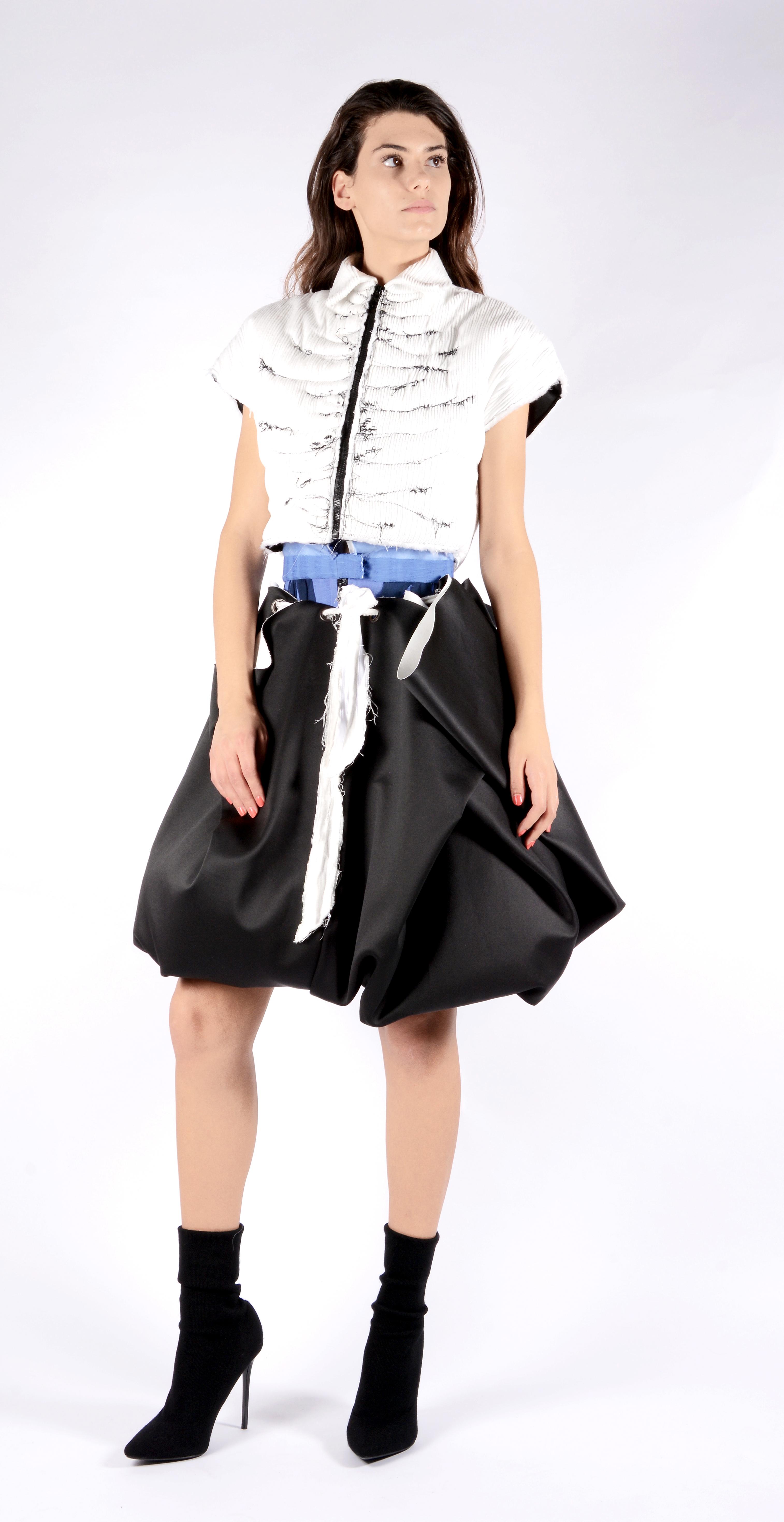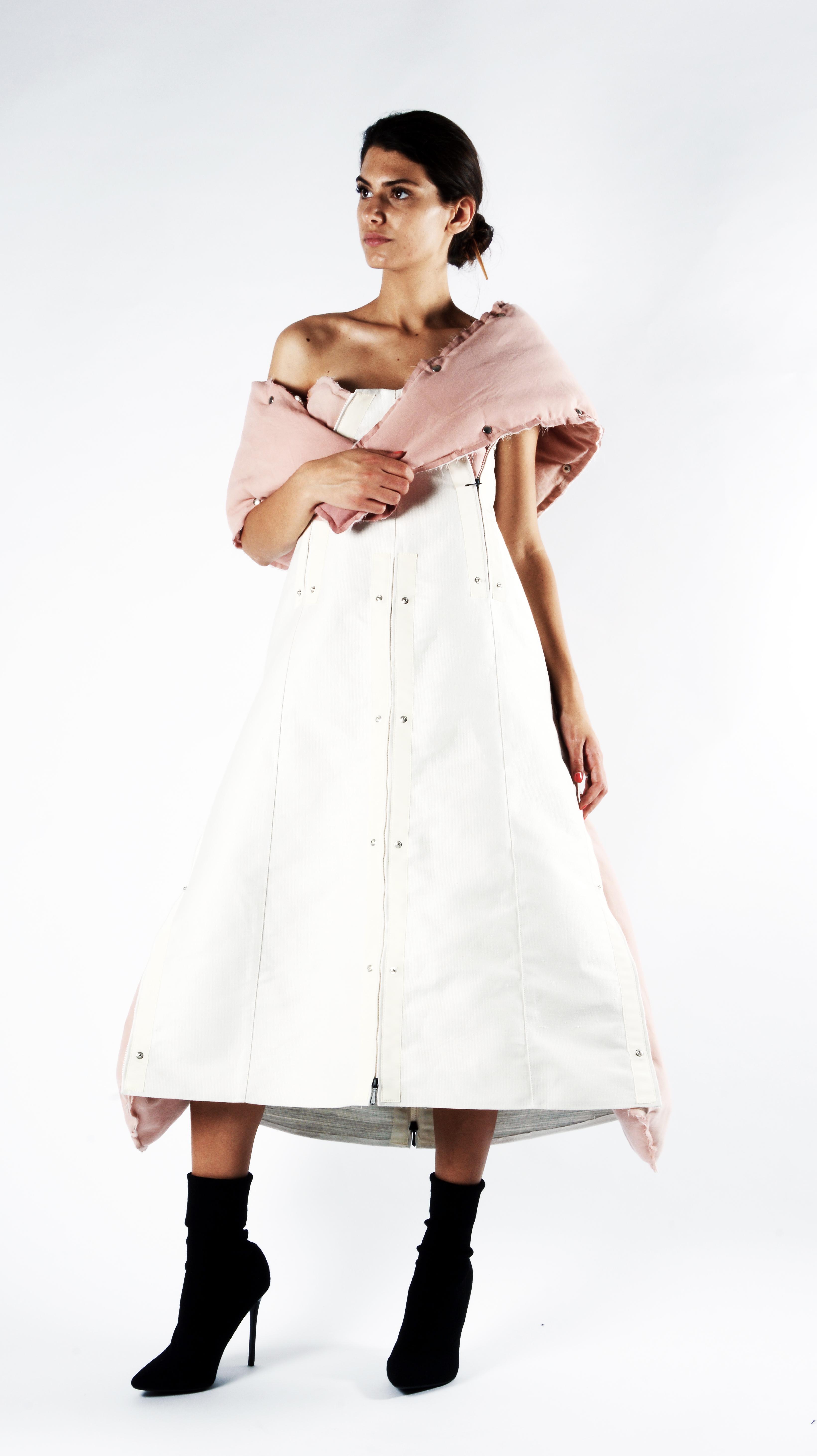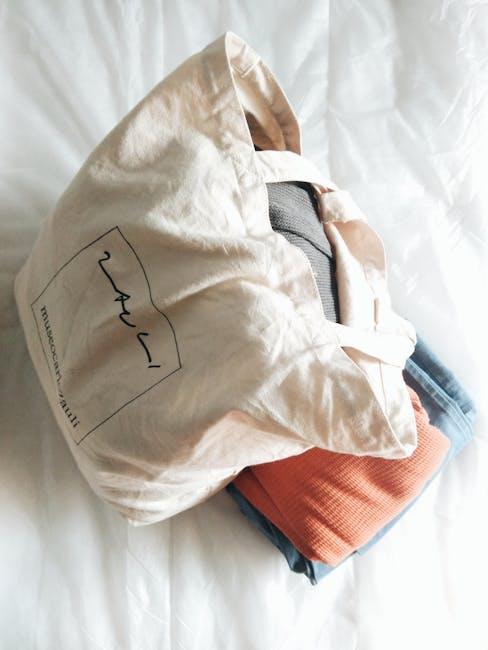In a world where the allure of the latest fashion trends often eclipses the deeper narrative of sustainability, a pivotal question emerges: should our sartorial choices favor eco-consciousness over the rapid allure of fast fashion? As the fashion industry continues its brisk march, fueled by ever-changing styles and fleeting fads, a growing chorus of voices calls for a more sustainable approach. This article delves into the dynamic intersection of fashion trends and environmental stewardship, exploring whether the ephemeral charm of fast fashion should yield to the enduring virtues of sustainability. Join us as we unravel this complex tapestry, examining the intricate threads that weave together our choices, our planet, and the future of fashion.
Rethinking Style: The Environmental Impact of Fast Fashion

In recent years, the conversation around fashion has shifted dramatically. The allure of fast fashion, with its rapid production cycles and affordable prices, has been overshadowed by the pressing need for sustainability. The environmental impact of this industry is significant, with textile waste, water pollution, and carbon emissions becoming increasingly difficult to ignore. As consumers become more conscious of their ecological footprint, there is a growing demand for brands to adopt sustainable practices.
Why is this shift crucial? Consider the following impacts of fast fashion:
- Resource Depletion: Fast fashion relies heavily on non-renewable resources, contributing to the depletion of natural materials.
- Pollution: The industry is a major contributor to water and air pollution, with toxic dyes and chemicals seeping into ecosystems.
- Waste: An immense amount of clothing ends up in landfills due to the disposable nature of fast fashion items.
To address these issues, fashion trends must prioritize sustainability. By embracing eco-friendly materials, ethical production processes, and circular fashion models, the industry can reduce its environmental impact and pave the way for a more sustainable future.
The Rise of Sustainable Fashion: Trends with a Conscience

The fashion industry is undergoing a transformative shift as sustainable fashion gains momentum. Unlike fast fashion, which focuses on mass production and quick consumption, sustainable fashion emphasizes ethical practices and environmental responsibility. This movement is characterized by several key trends that are reshaping how we think about our wardrobes:
- Eco-friendly Materials: Designers are increasingly using organic cotton, recycled polyester, and innovative fabrics like Tencel and Piñatex.
- Transparency and Traceability: Brands are committing to full transparency in their supply chains, ensuring consumers know the origins of their clothes.
- Timeless Designs: A focus on classic, durable styles encourages consumers to invest in pieces that last, reducing the cycle of constant purchasing.
- Second-hand and Upcycling: Thrift shopping and creative upcycling are gaining popularity, offering unique fashion choices with a reduced environmental impact.
As these trends continue to evolve, the fashion industry faces a critical question: should sustainability take precedence over the convenience and affordability of fast fashion? While the answer may vary, the growing demand for ethical choices suggests a significant shift in consumer priorities.
Balancing Fashion and Ethics: A Path to Sustainable Style

In the rapidly evolving world of fashion, the clash between style and ethics is becoming increasingly evident. As consumers become more conscious of their environmental footprint, the demand for sustainable fashion is growing. The question arises: should the industry shift its focus from the fleeting allure of fast fashion to more sustainable practices? The answer lies in finding a balance that respects both the planet and the art of fashion.
Sustainable fashion offers a myriad of benefits, including:
- Environmental Preservation: By using eco-friendly materials and reducing waste, sustainable fashion helps protect our planet.
- Ethical Labor Practices: Ensures fair wages and safe working conditions for workers.
- Quality Over Quantity: Promotes durable, timeless pieces that transcend seasonal trends.
On the other hand, fast fashion provides affordability and accessibility, allowing consumers to keep up with the latest trends. Yet, its impact on the environment and workforce cannot be ignored. The path forward involves educating consumers about the value of investing in sustainable fashion and encouraging brands to adopt ethical practices without compromising on style.
Practical Steps for Embracing Eco-Friendly Wardrobes

Transitioning to an eco-friendly wardrobe doesn’t mean sacrificing style or breaking the bank. Start by exploring your existing closet and identify pieces that can be creatively reimagined or repaired. Upcycling is a powerful tool; consider turning old jeans into trendy shorts or adding patches to a worn jacket for a fresh look.
- Shop Secondhand: Thrift stores and online resale platforms offer a treasure trove of unique, sustainable finds.
- Choose Quality Over Quantity: Invest in timeless, durable pieces that withstand seasonal trends.
- Support Ethical Brands: Look for labels that prioritize fair labor practices and sustainable materials.
Additionally, embrace minimalist principles by curating a capsule wardrobe, focusing on versatile pieces that can be mixed and matched. This not only reduces waste but also simplifies daily outfit choices, making sustainability a seamless part of your lifestyle.





































